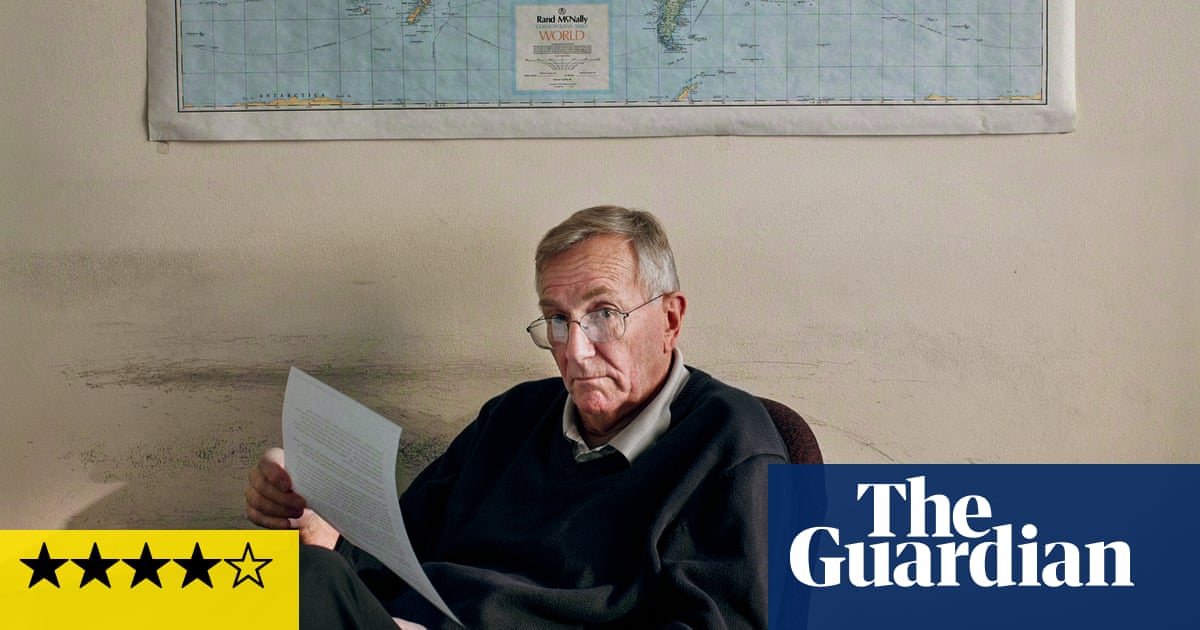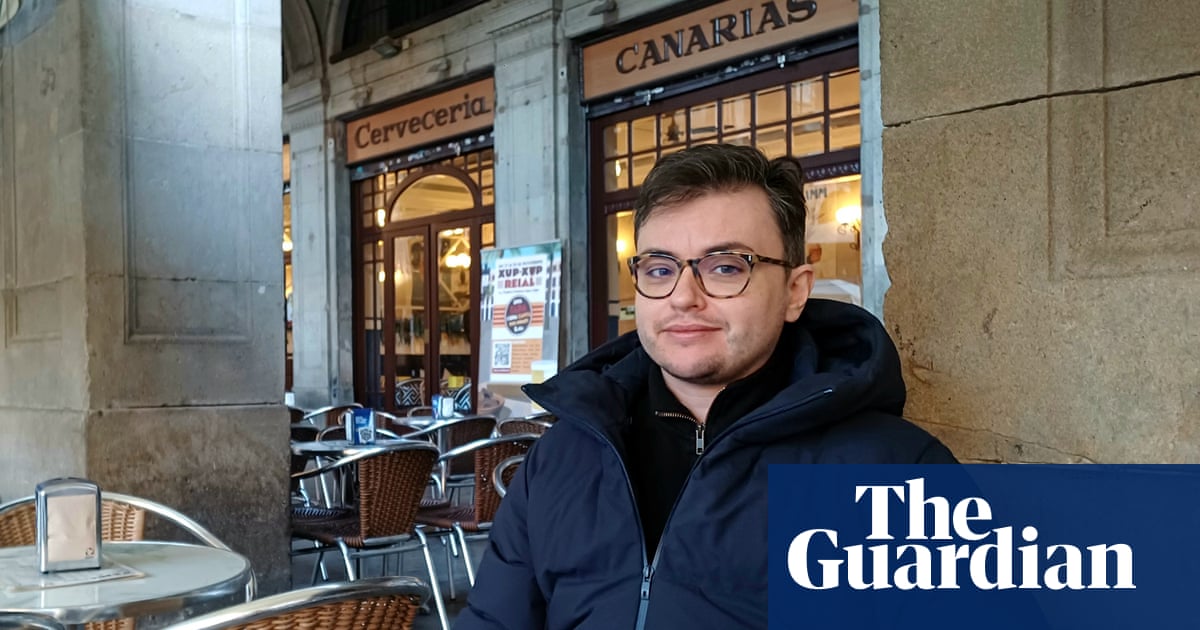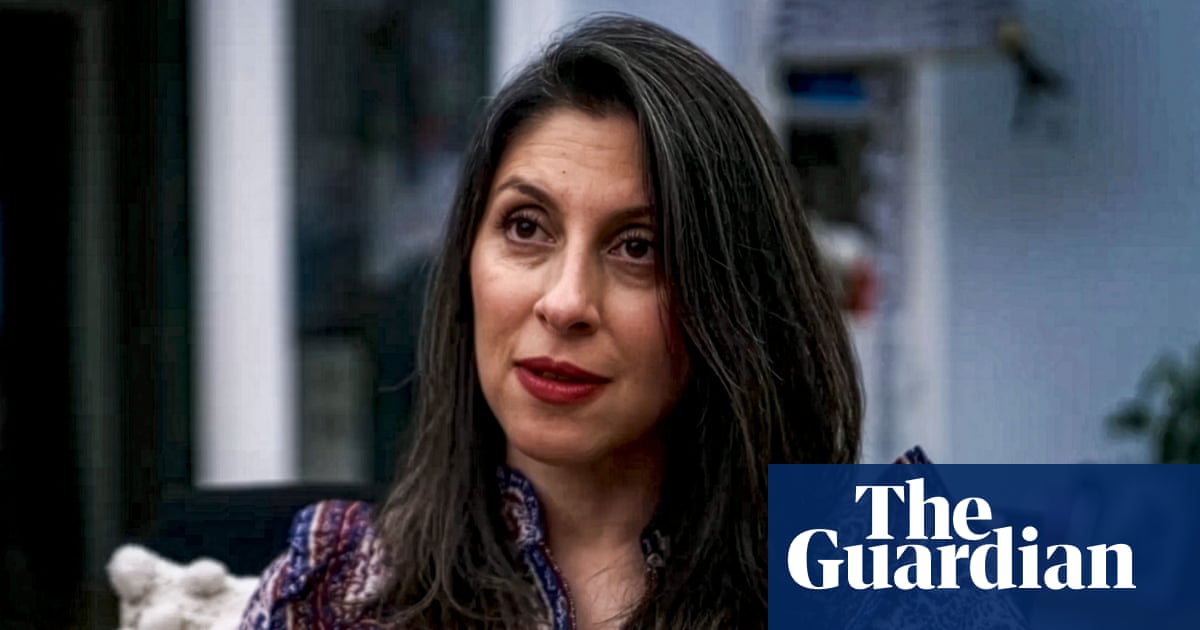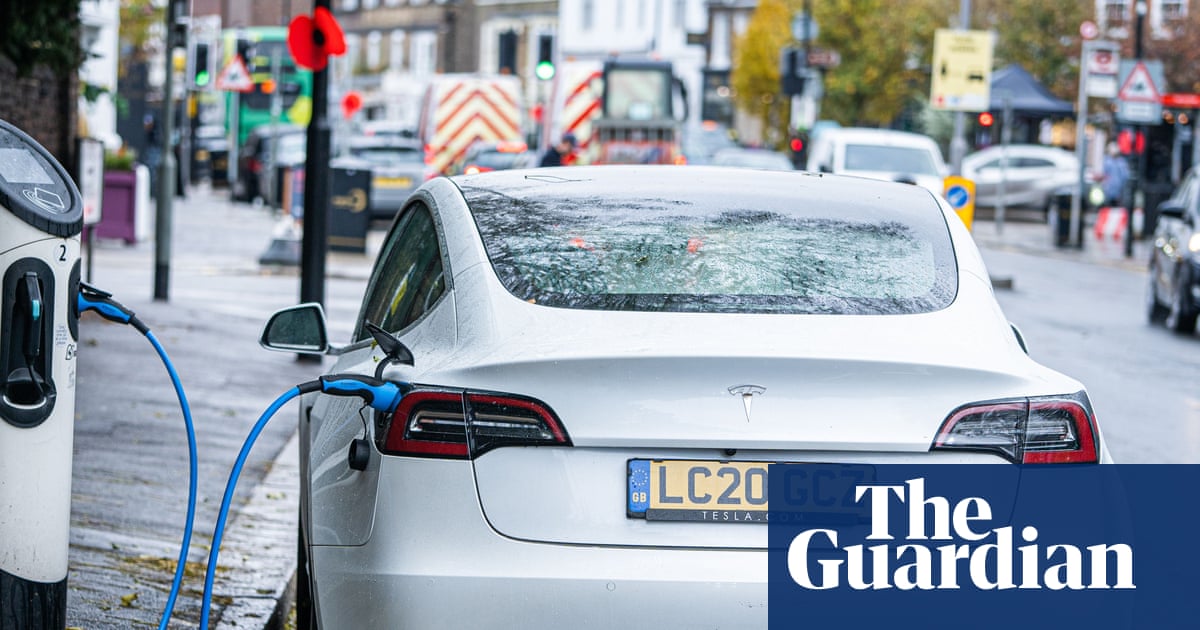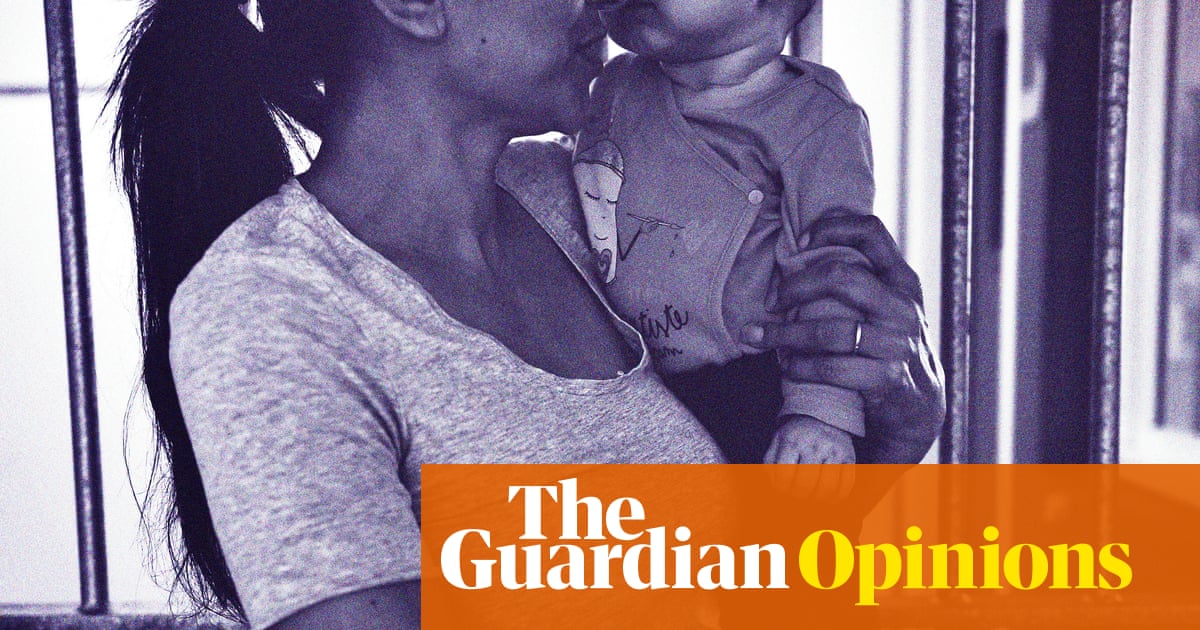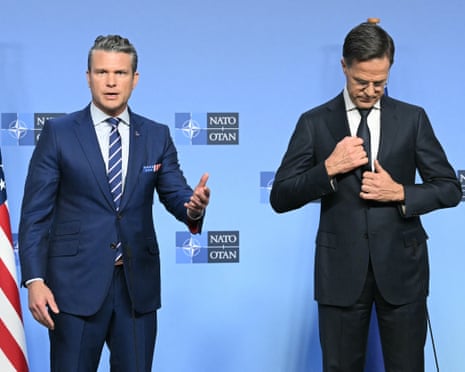
US defense secretary Pete Hegseth and Nato secretary general Mark Rutte speak to the press at Nato HQ in Brussels. Photograph: Nicolas Tucat/AFP/Getty Images
Show key events only Please turn on JavaScript to use this feature
Live feed
Opening summary
Nato defence ministers will look on Wednesday at boosting the alliance’s ability to counter Russian air incursions, as fears grow that Moscow is testing the west in a grey zone between war and peace.
Focus will be on bolstering support for Ukraine as US Defense Secretary Pete Hegseth joins his 31 Nato counterparts with his boss, President Donald Trump, mulling the supply of long-range missiles to Kyiv – after Ukraine president Volodymyr Zelenskyy confirmed that he would be meeting with Trump in Washington on Friday to discuss supplying Ukraine with Tomahawk missiles.
Hegseth said on Wednesday the US expects countries to invest more into the Prioritized Ukraine Requirements List (PURL) arms initiative for Ukraine.
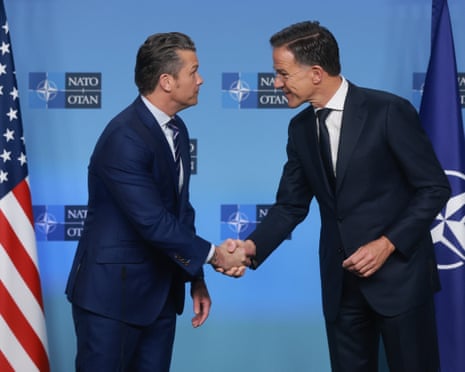
The gathering in Brussels comes after Moscow rattled Nato with a series of high-profile airspace violations in Poland and Estonia that fuelled fears of conflict spilling over its border.
Dutch defence minister Ruben Brekelmans said Nato needs to learn from the drone incursions find a more efficient way to down them than using F-35 fighting jets.
He added that his country plans to spend €90m ($104.6m) in drones for Ukraine. Estonia’s defence minister Hanno Pevkur said his country would be contributing $12m to the fourth PURL package, called the Baltic Nordic package.
The pledges of support come after Russia struck a thermal power plant in Ukraine overnight, gas firm Naftogaz said on Wednesday, without identifying the plant.
The company said in a statement that Russia had also targeted gas production facilities in eastern Kharkiv region and gas infrastructure in the Sumy and Chernihiv regions over the past week.
Meanwhile, Russia’s largest petrochemical complexes in the southern Bashkortostan region is working normally after attacks by Ukrainian drones, the regional governor said on Wednesday.
Radiy Khabirov said the Gazprom Neftekhim Salavat site had come under multiple attacks by Ukrainian drones.
“Their consequences were quickly eliminated. The plant is operating normally,” he wrote on Telegram.
In other developments:
-
Russia will continue to be a major threat to Nato after the war in Ukraine ends, Finland’s defence minister Antti Hakkanen told reporters on Wednesday, adding that they had seen a new build-up of Russian forces. Hakkanen, speaking before the meeting of Nato defence ministers, also said Russia is consuming military resources at a rapid pace and is becoming increasingly reliant on China.
-
Swedish defence minister Pal Jonson said on Wednesday that his country stands ready to make fresh contributions to the PURL arms initiative and called on other countries to continue to step up their assistance to Ukraine. “We’ve been seeing the wrong trajectory when it comes to support to Ukraine. That has been going down. We want to see more stepping up to enhance and increase the financial support and military donations to Ukraine,” Jonson said ahead of the meeting of Nato defence ministers held in Brussels
-
Britain’s defence secretary John Healy said on Wednesday his country’s jets will keep flying over Poland until the end of this year as British commitment to Eastern sentry mission is extended. “We are also ramping up our drone production for Ukraine,” he told reporters before attending a meeting of Nato defence ministers in Brussels.
-
Local authorities in Ukraine ordered the evacuation of families from dozens of villages on Tuesday near the all-but-destroyed north-eastern city of Kupiansk, citing the “worsening security situation”, in a region that has faced heavy Russian attacks. Oleh Syniehubov, governor of north-eastern Kharkiv region, wrote on Telegram that a total of 409 families with 601 children were told to leave 27 localities.
-
Ukraine’s energy provider on Tuesday said it had implemented power cuts in eight of the country’s regions after damage to energy infrastructure after Russian strikes. “Due to the difficult situation in the energy system caused by previous Russian attacks - in Sumy, Kharkiv, Poltava, Dnipropetrovsk, as well as partially in Kirovograd, Kyiv and Cherkasy regions - emergency shutdowns have been implemented,” Ukrenergo said in a statement.
-
Ukrainian President Volodymyr Zelenskyy on Tuesday revoked the citizenship of Odesa’s mayor on the grounds that he also had a Russian passport, acting to end the tenure of a divisive figure who has run the Black Sea port city for 11 years. Hennadiy Trukhanov, 60, an elected official, said he would take his case to court, denying having a Russian passport and insisting that he remained mayor. Ukrainian officials are prohibited from holding dual citizenship.
-
France’s prime minister, Sébastien Lecornu, has suspended Emmanuel Macron’s flagship 2023 pension overhaul until after the 2027 presidential election in the hope of winning over enough Socialist deputies to survive a no-confidence vote. In a welcome respite for the embattled French president, the left-leaning party, which holds the balance of power in a deeply divided parliament, suggested in response on Tuesday that it would not back any of the no-confidence motions to be voted on later this week.
Key events Show key events only Please turn on JavaScript to use this feature
Russia on Wednesday pushed back at US president Donald Trump’s warning that gasoline shortages showed Russia’s economy was nearing collapse, Reuters reports.
Trump on Tuesday expressed disappointment with president Vladimir Putin, whom he said was unwilling to put an end to the conflict in Ukraine.
Russian deputy prime minister Alexander Novak said that there was a stable domestic market supply of gasoline in Russia.
Novak said:
We have a stable domestic market supply, we see no problems in this regard
The balance is maintained between production and consumption, and we, on the part of the government and the relevant ministries, are doing everything to ensure that this remains the case.

Ukraine hit by fresh power cuts after Russian strikes
Russia struck Ukrainian power infrastructure with drones overnight, knocking out electricity supplies in several areas including in the central Dnipropetrovsk region, the Ukrainian Energy Ministry said on Wednesday, Reuters reports.
Power grid operator Ukrenergo said power supplies were limited in seven regions, most in the east. State-run gas firm Naftogaz said a thermal power plant had been hit, without identifying the plant.
Russia has sharply increased the number and intensity of attacks on the Ukrainian energy system in recent weeks, targeting power plants and gas facilities.
In a report, Naftogaz said the Russians had attacked gas facilities three times over the past seven days, including “critically important facilities” in the Kharkiv, Sumy and Chernihiv regions.
Ukrainian energy minister Svitlana Hrynchuk said earlier this month that Ukraine wanted to increase its gas imports by 30% following Russian airstrikes on its gas infrastructure.
Opening summary
Nato defence ministers will look on Wednesday at boosting the alliance’s ability to counter Russian air incursions, as fears grow that Moscow is testing the west in a grey zone between war and peace.
Focus will be on bolstering support for Ukraine as US Defense Secretary Pete Hegseth joins his 31 Nato counterparts with his boss, President Donald Trump, mulling the supply of long-range missiles to Kyiv – after Ukraine president Volodymyr Zelenskyy confirmed that he would be meeting with Trump in Washington on Friday to discuss supplying Ukraine with Tomahawk missiles.
Hegseth said on Wednesday the US expects countries to invest more into the Prioritized Ukraine Requirements List (PURL) arms initiative for Ukraine.

The gathering in Brussels comes after Moscow rattled Nato with a series of high-profile airspace violations in Poland and Estonia that fuelled fears of conflict spilling over its border.
Dutch defence minister Ruben Brekelmans said Nato needs to learn from the drone incursions find a more efficient way to down them than using F-35 fighting jets.
He added that his country plans to spend €90m ($104.6m) in drones for Ukraine. Estonia’s defence minister Hanno Pevkur said his country would be contributing $12m to the fourth PURL package, called the Baltic Nordic package.
The pledges of support come after Russia struck a thermal power plant in Ukraine overnight, gas firm Naftogaz said on Wednesday, without identifying the plant.
The company said in a statement that Russia had also targeted gas production facilities in eastern Kharkiv region and gas infrastructure in the Sumy and Chernihiv regions over the past week.
Meanwhile, Russia’s largest petrochemical complexes in the southern Bashkortostan region is working normally after attacks by Ukrainian drones, the regional governor said on Wednesday.
Radiy Khabirov said the Gazprom Neftekhim Salavat site had come under multiple attacks by Ukrainian drones.
“Their consequences were quickly eliminated. The plant is operating normally,” he wrote on Telegram.
In other developments:
-
Russia will continue to be a major threat to Nato after the war in Ukraine ends, Finland’s defence minister Antti Hakkanen told reporters on Wednesday, adding that they had seen a new build-up of Russian forces. Hakkanen, speaking before the meeting of Nato defence ministers, also said Russia is consuming military resources at a rapid pace and is becoming increasingly reliant on China.
-
Swedish defence minister Pal Jonson said on Wednesday that his country stands ready to make fresh contributions to the PURL arms initiative and called on other countries to continue to step up their assistance to Ukraine. “We’ve been seeing the wrong trajectory when it comes to support to Ukraine. That has been going down. We want to see more stepping up to enhance and increase the financial support and military donations to Ukraine,” Jonson said ahead of the meeting of Nato defence ministers held in Brussels
-
Britain’s defence secretary John Healy said on Wednesday his country’s jets will keep flying over Poland until the end of this year as British commitment to Eastern sentry mission is extended. “We are also ramping up our drone production for Ukraine,” he told reporters before attending a meeting of Nato defence ministers in Brussels.
-
Local authorities in Ukraine ordered the evacuation of families from dozens of villages on Tuesday near the all-but-destroyed north-eastern city of Kupiansk, citing the “worsening security situation”, in a region that has faced heavy Russian attacks. Oleh Syniehubov, governor of north-eastern Kharkiv region, wrote on Telegram that a total of 409 families with 601 children were told to leave 27 localities.
-
Ukraine’s energy provider on Tuesday said it had implemented power cuts in eight of the country’s regions after damage to energy infrastructure after Russian strikes. “Due to the difficult situation in the energy system caused by previous Russian attacks - in Sumy, Kharkiv, Poltava, Dnipropetrovsk, as well as partially in Kirovograd, Kyiv and Cherkasy regions - emergency shutdowns have been implemented,” Ukrenergo said in a statement.
-
Ukrainian President Volodymyr Zelenskyy on Tuesday revoked the citizenship of Odesa’s mayor on the grounds that he also had a Russian passport, acting to end the tenure of a divisive figure who has run the Black Sea port city for 11 years. Hennadiy Trukhanov, 60, an elected official, said he would take his case to court, denying having a Russian passport and insisting that he remained mayor. Ukrainian officials are prohibited from holding dual citizenship.
-
France’s prime minister, Sébastien Lecornu, has suspended Emmanuel Macron’s flagship 2023 pension overhaul until after the 2027 presidential election in the hope of winning over enough Socialist deputies to survive a no-confidence vote. In a welcome respite for the embattled French president, the left-leaning party, which holds the balance of power in a deeply divided parliament, suggested in response on Tuesday that it would not back any of the no-confidence motions to be voted on later this week.
Explore more on these topics

.png) 1 month ago
44
1 month ago
44










